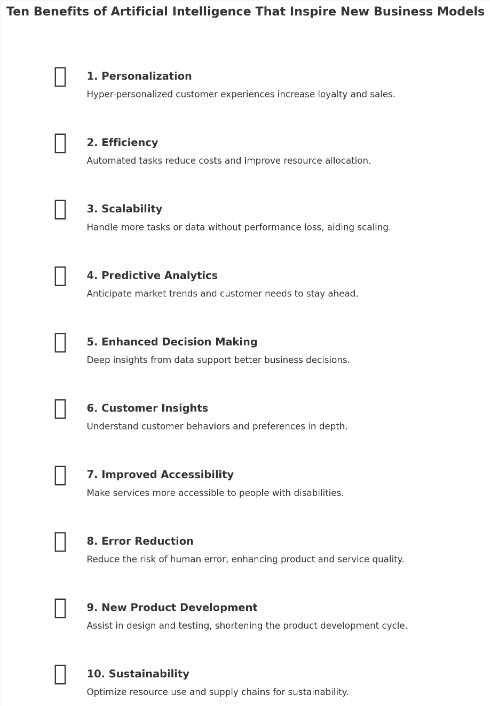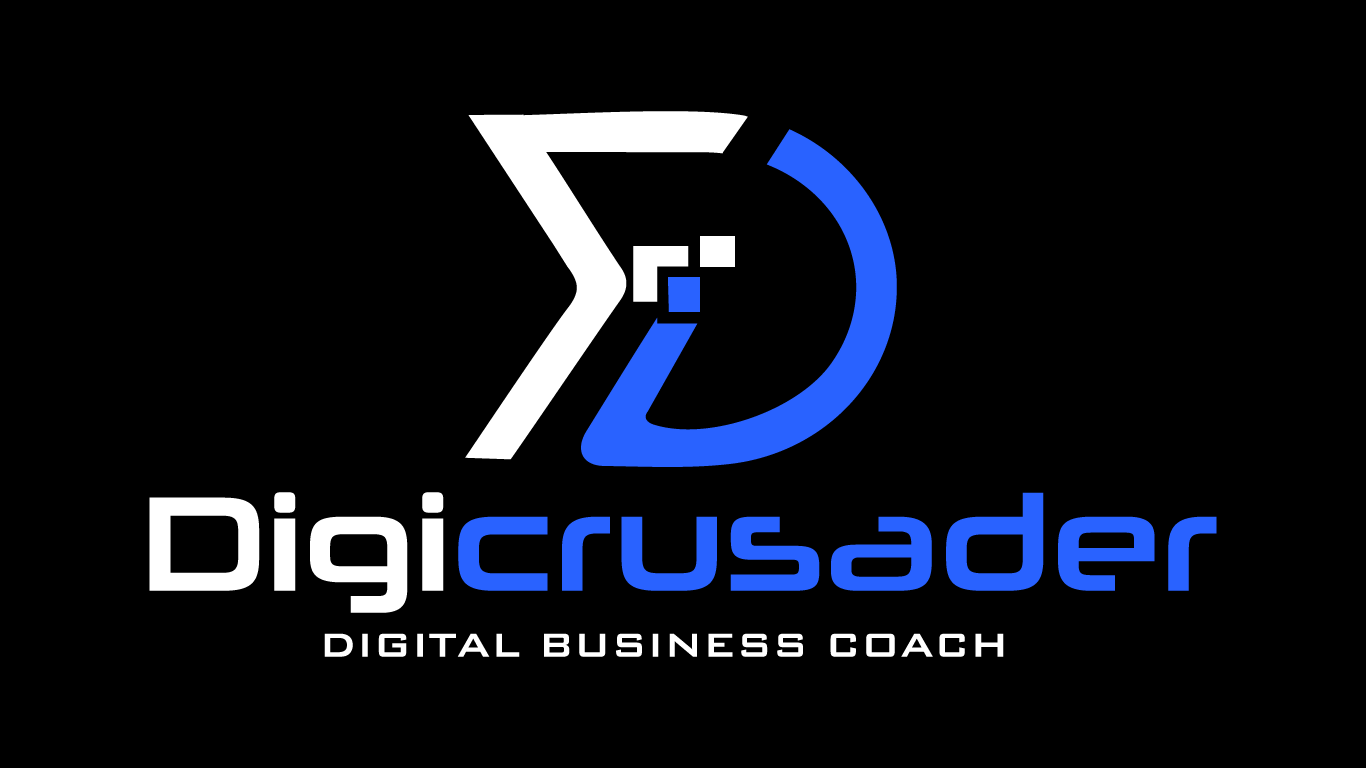AI Tools for Small Business – An Introduction
Small businesses often face the Herculean task of competing against far larger and resource-rich companies in today’s competitive environment. The challenges are manifold: limited budgets, smaller workforces, and the relentless pressure to innovate. That’s where AI Tools for Small Business Owners come into play.
Yet, in this narrative of perseverance and ingenuity, Artificial Intelligence (AI) emerges as the sling for the proverbial David – a game-changing tool that levels the playing field in unprecedented ways.
Artificial Intelligence, once the bastion of tech giants, is now democratizing innovation, offering small businesses the tools to automate processes, understand customers better, and make decisions with a precision previously beyond reach.
This article isn’t just an exploration; it’s a treasure map to the most innovative AI tools designed for the unique needs and constraints of small businesses. From chatbots that can handle customer service to analytics that uncover hidden market trends, AI is not just an option; it’s becoming an integral part of the small business toolkit.
Section 1: AI for Small Businesses: An Untapped Goldmine
At its essence, Artificial Intelligence (AI) empowers machines to execute tasks that generally necessitate human intellect. This includes capabilities like problem-solving, pattern recognition, linguistic comprehension, and experiential learning for small enterprises.
The untapped potential of AI for small businesses lies in its capacity to shoulder the burdensome tasks of data handling and analytics where the workforce might be scarce. AI can decipher customer data patterns in a fraction of the time humans require, predicting product trends or customer inquiries that could lead to enhanced conversion rates.
In my opinion, AI’s significance for small businesses is rooted in its proficiency to perform intricate tasks rapidly and precisely. In customer service, AI-driven bots can offer immediate responses around the clock, bolstering customer satisfaction without necessitating a continuous human presence.
The spectrum of AI’s offerings is broad. It can aid small businesses in customizing marketing efforts, optimizing supply chains, streamlining operations, and fortifying security measures. With AI’s assistance, mundane tasks can be automated, allowing businesses to reallocate their time to strategic growth endeavors.
AI also democratizes the competitive environment, enabling small enterprises to rival larger companies with more substantial resources. A modest team, with the help of AI, can match the analytical prowess of a full marketing department, emulate the customer insight of a seasoned sales team, and attain the operational fluency of a sophisticated entity.
Small businesses can harness AI by pinpointing their most critical areas of need. Whether it’s in customer engagement, data analysis, or marketing, once these areas are identified, they can incorporate specialized AI solutions. For instance, AI-driven analytical tools can elucidate customer behavior, and AI-based inventory systems can optimize product restocking schedules.
In summary, AI equips small businesses to not only contend in a competitive market but to excel, carving out unique market niches and delivering unparalleled customer service.
Section 2: From Novice to Pro: Free AI Tools for Small Business
Moving from a basic appreciation of AI’s capabilities, small enterprises might ponder the initiation into this technology without incurring substantial expenses. The encouraging news is that many free AI tools can streamline operations, augment customer experiences, and provide valuable insights at no cost.
Here’s an array of complimentary AI instruments poised to revolutionize small businesses:
Google Analytics: Harnesses AI to monitor and analyze web traffic, yielding insights into customer behaviors and conversion dynamics.
Mailchimp’s AI Features: Provides AI-enhanced functionalities such as subject line optimization and timing of email campaigns to bolster open rates and customer engagement.
HubSpot CRM: Integrates AI features that bolster customer relationship management by forecasting top leads and suggesting subsequent customer engagement strategies.
Zoho CRM: Offers AI enhancements similar to HubSpot, aiding small businesses with sales projections, anomaly detection, and sentiment analysis to refine sales and customer service.
Canva’s AI Studio: Assists businesses in elevating their visual content with AI-recommended designs, layouts, and branding advice.
Hootsuite’s AI: Utilizes AI to assist businesses in monitoring their online brand presence, understanding brand sentiment, and effectively engaging with customers on social media.
Answer the Public: Employs AI to extract and illustrate search queries, aiding businesses in discerning customer search behavior.
Chatbot Platforms: Various platforms, such as Botpress, provide complimentary AI chatbot versions that can be integrated into websites to interact with customers instantaneously, addressing their inquiries and guiding them through the purchasing process.
These free AI applications provide a snapshot of the efficiencies and enhancements AI can contribute to a small business. By utilizing these tools, small businesses can accomplish more with less effort — automating repetitive tasks, delving deeper into customer preferences, and personalizing marketing campaigns more accurately.
Section 3: The Best AI Tools for Small Business Growth
Having established a foundation with free AI resources, the subsequent progression involves exploring AI solutions that impart a competitive edge to small business expansion. These solutions are distinguished by their scalability, cost-effectiveness, and tangible return on investment.
Let’s delve into some exemplary AI tools specifically tailored for the expansion of small businesses and how they can be seamlessly integrated into everyday operations.
Salesforce Einstein: A suite of AI features within Salesforce, Salesforce Einstein empowers small businesses with customer relationship management (CRM), harnessing the power of AI to analyze diverse data sources, forecast customer behavior, and suggest optimal actions to amplify sales and customer service.
IBM Watson: Offers a spectrum of AI services, including advanced language processing and data analysis. Small businesses can utilize Watson to extract insights from their data, automate customer service through Watson Assistant, and curate personalized customer experiences.
Microsoft Power BI: This business analytics tool leverages AI to furnish interactive visualizations and business intelligence capabilities, enabling small businesses to make data-informed decisions.
Klaviyo: An email marketing platform that employs AI to automate and personalize communication, predicting the ideal timing for customer emails, which enhances engagement and conversion rates for small e-commerce enterprises.
MarketMuse: In digital marketing, where content is paramount, MarketMuse utilizes AI to assist small businesses in developing content strategies that elevate search engine rankings and user engagement by analyzing existing content and recommending topics and keywords.
Zendesk: Offers AI-powered customer service solutions that streamline customer query management for small businesses. Its chatbots can address common inquiries, allowing human agents to focus on more complex issues.
Practical examples of AI applications in small businesses include:
Lets explore some practical examples of using AI tools for small businesses, from my experience:
Automating Customer Service: A boutique could implement an AI chatbot to respond to
common queries regarding product availability, business hours, and return policies, enhancing customer experience and liberating staff for in-person service.
Personalized Marketing: An online bookstore might use AI to scrutinize purchase histories and browsing habits, then dispatch personalized book recommendations and promotions to each customer, bolstering the likelihood of repeat business.
Predictive Inventory Management: A family-owned eatery could employ AI-powered tools to anticipate busy periods and accordingly adjust inventory orders, minimizing waste and ensuring optimal fresh ingredient availability.
Data-Driven Decision Making: A small marketing firm could utilize AI analytics to monitor campaign efficacy across different platforms, discern the most successful strategies, and refine client campaigns for enhanced outcomes.
To conclude, these AI solutions furnish small businesses with the arsenal needed to compete in a modern marketplace, where smart technology is swiftly becoming the standard.
Section 4: Innovation: AI’s Role in New Business Ideas for Small Businesses
Innovation is the life force for any small business aspiring to stake its claim in today’s marketplace. AI ushers opportunities for novel ventures and services previously relegated to speculative fiction.
Here are innovative AI-driven business concepts:
Personalized Shopping Assistants: AI can drive virtual shopping aides that tailor customer recommendations based on their shopping history, preferences, and prevailing trends.
AI-Driven Content Creation Services: Utilizing AI to generate content, small enterprises can provide services that craft marketing copy, blog posts, or even specialized industry content.
Smart Agriculture Solutions: AI systems capable of analyzing weather data, soil conditions, and crop health to offer farmers actionable insights have the potential to transform small-scale agriculture.
Predictive Maintenance for Home Appliances: A service that uses AI to foresee potential failures in home appliances and propose preemptive maintenance can significantly benefit homeowners.
AI Fitness Coaches: An application that designs personalized fitness regimens by learning from user performance and adjusting workout and nutrition plans accordingly.
Section 5: Ten Benefits of Artificial Intelligence for Small Businesses

Here are the top 10 benefits of AI application in small businesses, distilled from my 2 decade long experience:
- Personalization: AI empowers businesses to provide highly personalized customer experiences, enhancing loyalty and sales.
- Efficiency: AI-driven task automation reduces operational expenses and facilitates the effective allocation of resources.
- Scalability: AI systems can manage increasing workloads or data volumes without performance degradation, enabling smooth business scaling.
- Predictive Analytics: AI equips businesses to foresee market trends and customer needs, maintaining a competitive stance.
- Enhanced Decision Making: AI delivers profound data insights that bolster business decision-making processes.
- Customer Insights: AI’s analytical prowess aids businesses in comprehending customer behaviors and preferences in depth.
- Improved Accessibility: AI enhances service accessibility for disabled individuals, expanding market reach.
- Error Reduction: AI minimizes human error risks, enhancing product and service qualit
- New Product Development: AI accelerates the design and testing of new products, shortening development cycles.
- Sustainability: AI optimizes resource utilization and supply chains, contributing to more eco-friendly business practices.
These advantages not only pave the way for new business ventures but also enable existing small businesses to rejuvenate their offerings. It’s an exciting era for small enterprises, with AI poised to convert a spark of innovation into a beacon of success.
Section 6: Embracing the AI Journey: Next Steps for Small Business Owners
In a world that’s rapidly embracing the digital revolution, AI stands as a beacon for growth, innovation, and transformation. Small business owners who harness the power of AI are positioning themselves at the forefront of their industries. Here’s how you can embark on this journey and what the future holds for those who do.
Integrating AI into Your Business Operations
The first step in adopting AI is to understand your business needs and identify areas where AI can have the most significant impact. Consider the following actions:
Conduct an AI Audit: Review your current processes and determine which areas could benefit from automation, efficiency, or enhanced customer experiences through AI.
Start Small: Begin with a single AI application. This could be a chatbot for customer service, an AI-driven analytics tool for your marketing efforts, or automation software to streamline repetitive tasks.
Educate Your Team: Ensure that your team understands the potential of AI and is ready to embrace new technologies. Provide training and resources to help them adapt.
Collaborate with AI Experts: Partner with AI professionals or consultants who can guide you through selecting the right tools and technologies for your business.
Measure and Adapt: Implement metrics to assess the impact of AI on your business. Be prepared to iterate and adapt your strategy as you learn from the data.
I would also recommend you to check out my 30-day Masterclass on AI for Small Business, to supercharge your growth!
The Future of AI Tools for Small Business
The AI landscape continuously evolves, and staying informed about emerging trends will be crucial for small business owners. Here are a few trends to watch:
Increased Accessibility: As AI technology becomes more user-friendly and affordable, its adoption by small businesses is set to increase dramatically.
Custom AI Solutions: Expect a rise in AI tools tailored specifically for niche markets and small business needs, making it easier to find solutions that fit your specific business model.
AI-Powered E-commerce: With advancements in AI, small businesses will be able to offer personalized shopping experiences to compete with larger retailers.
Ethical AI: As society becomes more aware of AI’s ethical implications, businesses must ensure their AI solutions are transparent and fair.
Integration with IoT: Integrating AI with the Internet of Things (IoT) will enable small businesses to gain insights and control over various operations, from supply chain to customer engagement.
As you consider these steps and future trends, remember that AI is not just a set of tools but a journey toward a more agile, informed, and innovative business operation. The path forward is one of exploration and continuous learning.
By embracing AI, small business owners can unlock new levels of efficiency, create more personalized customer experiences, and carve out a competitive edge in a crowded marketplace. The future is bright for small businesses ready to step into the world of AI.
AI Call to Action for Small Business Owners
As this article concludes, let it not be an ending but a beginning—a stepping stone for small business owners to embark on their AI journey. The time to act is now. The tools are more accessible than ever; the pathways to implementation are laid out. The only question that remains is not if but when and how you will bring AI into the heart of your business operations.
Leap and join the ranks of small businesses redefining their industries through AI. Let your business be a part of the renaissance, a transformation that promises not only survival in a digital age but a flourishing era of growth, innovation, and success. AI is your ally, and with it, the future is yours to shape.
I also recommend you to check out the collection of Best AI Tools and accelerate your growth!
FAQ: AI Tools For Small Business
Small businesses can harness AI for various tasks like customer service through chatbots, sales predictions with predictive analytics, personalized marketing campaigns, process automation to cut costs, and data analysis to make informed decisions.
It depends on your business needs. For CRM and sales, tools like Salesforce Einstein can be very effective. For marketing automation, HubSpot’s AI is powerful. For insights and analytics, Google Analytics offers AI-powered predictions.
Identify the areas of your business that can benefit from automation or enhanced analytics. Choose AI tools that align with those needs. Start with free versions if available, and consider investing as your business scales up and requirements become more complex.
Absolutely! AI can help identify market gaps, analyze consumer trends, and streamline the startup process. For instance, an AI-driven market analysis tool can help you understand where there’s a demand for new products or services.
Adoption rates are increasing, with a Salesforce report suggesting that small business use of AI doubled from 2018 to 2020. As AI tools become more accessible and affordable, this number is expected to grow. According to many sources, more than 6000 AI Tools have been launched in 2023 alone!
Begin by identifying a problem that AI can solve effectively. Research the market, build a skilled team, and develop a clear business plan. Utilize AI frameworks and tools to build your solution, and focus on how your AI business can add unique value.
AI benefits small businesses by enhancing decision-making with data-driven insights, automating repetitive tasks to save time and money, personalizing customer experiences to increase sales, and providing predictive analysis for better planning.
The future of AI for small businesses is promising, with advancements making AI more accessible and tailored to small business needs. AI will likely become a standard business tool, much like computers and the internet.
Startups can use AI to refine their business model, automate operations, gather customer insights, personalize customer engagement, and optimize their marketing strategies. It’s about using AI to do more with less and grow rapidly.
AI helps business owners by providing tools for better time management, reducing operational costs through automation, enabling precise targeting in marketing efforts, and offering insights for strategic decision-making. It’s a powerful ally in business growth and competitiveness.











